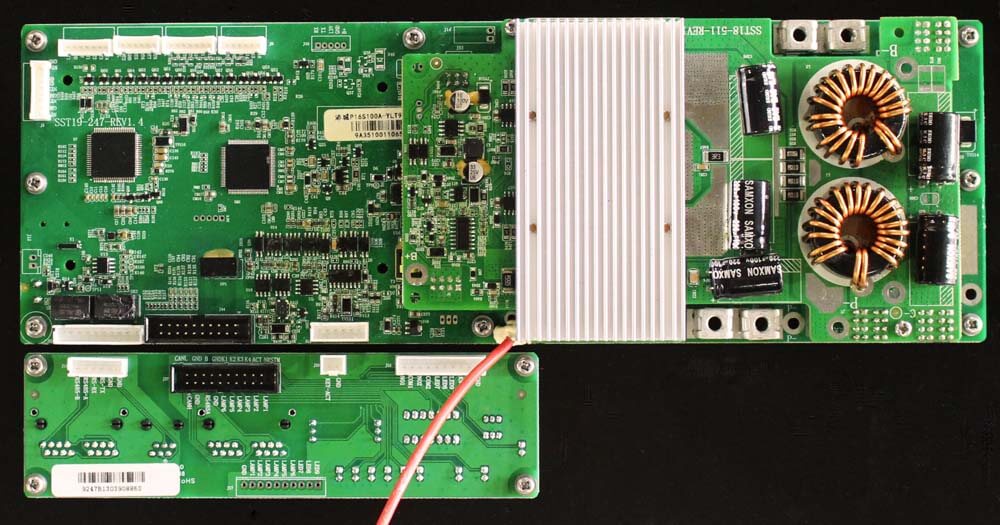Introduction
A battery management system (BMS) is a computerized system that manages a battery bank or groups of batteries. The BMS monitors the state of charge, state of health, and temperature of the batteries in the bank. It also manages to charge and discharge to ensure that the batteries are used efficiently and last as long as possible.
The BMS includes a battery charger, a load controller, and a communications module. The charger charges the batteries when they are low and prevents them from being overcharged. The load controller monitors the loads on the batteries and controls the amount of power supplied to them. The communications module sends information about the state of charge, state of health, and temperature of the batteries to a display or a monitoring system.
How do lithium battery management systems work?
BMSs work by regulating the voltage and current of the battery. They also monitor the temperature and state of charge of the battery and other factors that can impact its health. By doing this, BMSs help to protect lithium batteries from damage, extend their life and ensure optimal performance.
Some BMSs also include a data logger, which records the battery’s use. This data can be helpful in troubleshooting problems and optimizing the battery’s performance.
One of the biggest benefits of using a BMS is that it can help to prevent thermal runaway. Thermal runaway is a condition that can occur when a battery gets too hot, which can lead to a fire or explosion. A BMS can help to prevent this by regulating the battery’s temperature.
BMSs are especially important for lithium-ion batteries, which have a high risk of thermal runaway. Lithium-ion batteries are commonly used in consumer electronics, such as smartphones and laptops. They are also used in electric vehicles and energy storage systems.
How do you charge a lithium-ion battery with BMS?
The most common way to charge a lithium-ion battery with a BMS is by using a charger that is specifically designed for lithium-ion batteries. The charger will usually include a connector that plugs into the BMS. Some chargers also include an integrated BMS.
When charging a lithium-ion battery, following the manufacturer’s instructions is important. Chargers can vary in their voltage and current output, so using the correct charger for your battery is important.
It is also important to monitor the charging process to ensure that the battery is not overcharged. Overcharging can damage a lithium-ion battery and shorten its life.
What are some of the benefits of using a BMS?
Some of the benefits of using a BMS include:
- Protection from thermal runaway
- Regulation of voltage and current
- Monitoring of temperature and state of charge
- Data logging for troubleshooting and optimization
- Prevention of overcharging
- Compatibility with a variety of chargers
What are some of the risks of using a lithium-ion battery without a BMS?
The biggest risk of using a lithium-ion battery without a BMS is thermal runaway. Thermal runaway can occur when the battery gets too hot, leading to a fire or explosion.
Other risks include:
- Damage to the battery
- Reduced life of the battery
- Overcharging the battery
- Short-circuiting the battery
- Charging the battery with the wrong charger
Is it necessary to use a BMS with a lithium-ion battery?
There is no definitive answer to this question. Some people believe that it is unnecessary to use a BMS with a lithium-ion battery, while others believe it is essential. Whether or not to use a BMS depends on several factors, including the type of battery, the application, and the user’s level of experience.
It is generally good to use a BMS with a lithium-ion battery, especially if the battery is being used in a high-risk application. A BMS can help protect the battery from damage and ensure its safe operation. However, if you are a beginner or using a battery for low-risk applications, it may not be necessary to use a BMS.
Conclusion
A battery management system, or BMS, is a device that monitors the health and performance of a battery. It helps to protect the battery from damage and ensure its safe operation. BMSs are especially important for lithium-ion batteries, which have a high risk of thermal runaway. Chargers can vary in their voltage and current output, so using the correct charger for your battery is important. It is also important to monitor the charging process to ensure that the battery is not overcharged.

